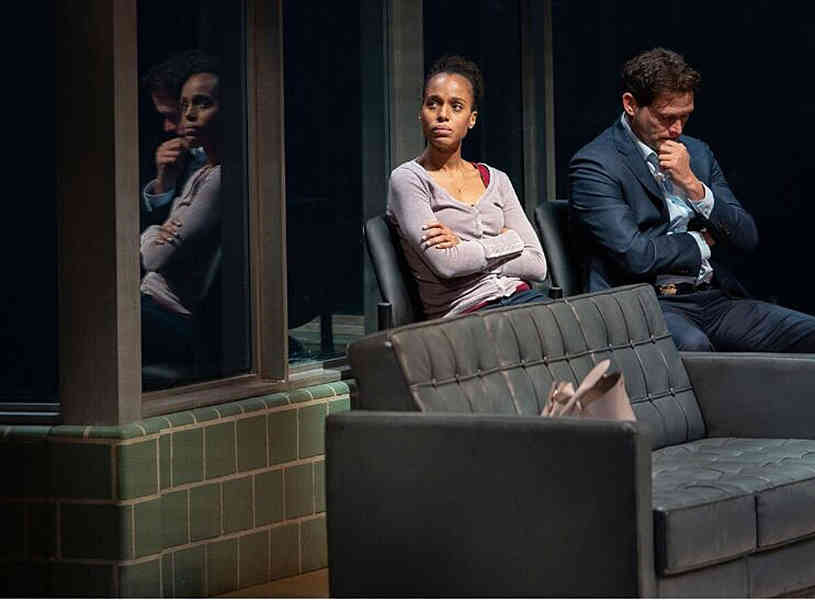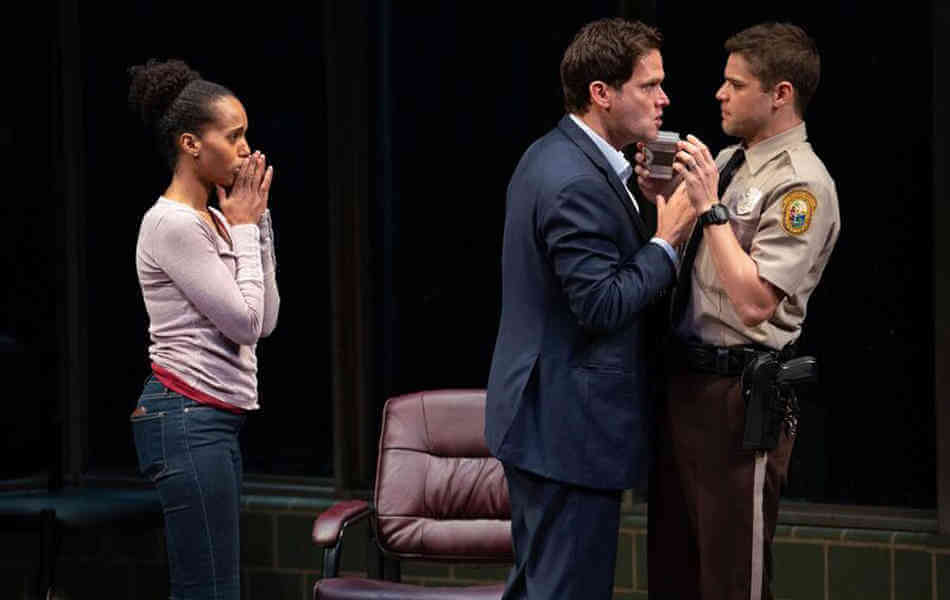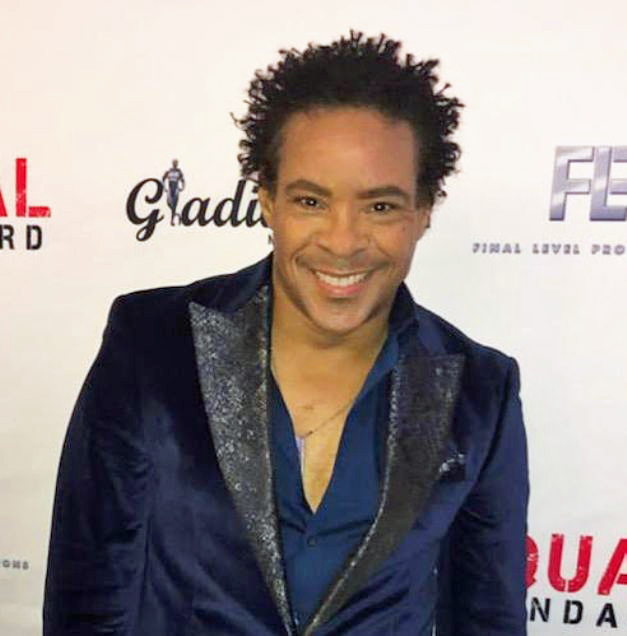What goes through the mind of a mother of a teen-aged son who has not checked in with her for almost 24 hours?
What if that mother is Black, living in the southern-most state of the Union and after calling her only child repeatedly gets a voice recording?
Take a deep breath, Kendra Connors is such a mom.
Portrayed by Kerry Washington in a Broadway play entitled “American Son” the anxious and fearful mom takes audiences through a harrowing worrying dawn that unfortunately is or has been the nightmare more than a few women of her pigment have had to overcome regardless of their zip code.
The riveting story unfolds with a mother staring out into the dark of night, waiting, wondering and reflecting on her child’s existence.
The rain is coming down in buckets-ful.
Is he in a car accident?
Is he hurt?
Why isn’t he answering his phone?
Where is he?
Audiences must wait for the answers.
As a matter of fact, audiences have to wait without intermission to solve the mystery.
And not until the last minute are the answers revealed.
Christopher Demos-Brown is genius as a first-time presenter on the Great White Way.
His dramatic 85-minute production begins and ends with angst and predicated conclusion that harkens to recurring storylines told in Breaking News network reports on television.
Each word forms poignant sentences spoken in phrases carefully constructed to offer meaningful clues to the where-about of the adolescent youth named Jamal.
And in those waiting moments the writer provides a tour de force reflection on modern Jim Crow realities.
Although throughout and to the end the missing young-man is never revealed, a vivid description provides indication of a son’s façade and wardrobe which might give evidence for automatic suspicion in a 305 area code.
An opening scene finds Jamal’s mother in a waiting room inside a police precinct dialing and redialing on her cell phone.
Obviously pessimistic about her son’s whereabouts in the middle of the night, she seems nervous, anxious and cautious but seeks the help of the department and is assigned to a white Police Officer Paul Larkin (Jeremy Jordan).
PO Larkin is by-the-book consistent.
Admittedly donut-loving, dedicatedly protocol and condescending with responses, PO Larkin subscribes to all the Black stereotypes familiar to Blacks living in America.
His narrow lens seems impervious to the urgency of a situation that overwhelms a concerned Black mother.
“Does your son have an alias?”
“Does he belong to a gang?”
“Does he have a tattoo?”
Probing to his height and weight seems a normal enough question but to a Black mother whose limited interaction with a disconnected lawman she conjures signs of a racist cop and hears “is he a big Black, scary-looking man?”
Not everyone colored him racist, later on the cop is described as a “low level rookie.”
In fact he is a department approved, public servant and qualified law enforcement officer who carries a gun.
He claims that the questions he asks are routine, standard ones needed to identify a missing person.
However, when faced with a well-educated Black woman who comprehends codes used to label Blacks she calls him out on what she perceives to be a racist’s line of query.
In turn, the lawman interprets her behavior to be confrontational.
She is not fazed by the dilemma and hurries the interview process in order to expedite finding her offspring.
“No he does not have an alias.”
“He does not belong to any gang.”
“He is six feet tall …”
She rattles off Jamal’s statistics as if rehearsed for an inquest conducted by the FBI.
Finally, after hours of waiting without an inkling of explanation from the police, she takes comfort when her husband, Scott (Steven Pasquale) arrives at the precinct.
Spoiler alert – Mr. Connor is white.
After a moment after his arrival, she proves her instinct correct when the rookie cop provides detailed information to her spouse.
Along with clues already gleaned from the computer, the father is offered coffee and assurance that more details will follow.
The already beleaguered mom is confounded by the reverse treatment meted to her white spouse.
Her situation is not helped when a superior Lieutenant John Stokes (Eugene Lee) reports for work.
The detective is Black.
He is the lead officer in the case and the long awaited answer to many questions.
He portrays a detached, stern, caustic individual who further exacerbates the tense atmosphere which preceded his late arrival.
Needless to say, a jolting verbal exchange between the four characters ensues to heighten the tension and prolongs the angst already evident throughout the Booth Theater.
The drop of a pin might have caused an explosion inside the theater.
Patrons seem engrossed, anxious, quizzical and even fearful that Jamal could be in grave peril.
Onlookers to a live, reality story – happening in front of everyone, such is the mood.
That together the cast deliver individual justification of different perspectives to a likely scenario is evident in this 21st century version of an eye-opening movie from 1934 titled “Imitation of Life.”
Although the storyline does not parallel the heart-tug which featured gospel singer Mahalia Jackson in a tale about a bi-racial, daughter, passing for white, the fact that the staging provides a plausible and real life enactment relative to an entire race during this millennium bears resemblance.
Each actor connects with audiences to advance the always unfolding drama brilliantly spotlighting how varied perspectives can frame and color a case.
It’s easy to side with each character.
At times, each can be credibly lauded for taking a particular stance.
And in a split second, that same endorsed argument could be rendered absurd.
The play provides powerful reminders to real-life tragedies involving Tamir Rice, Eric Garner and others who are injected into the dialogue of “American Son.”
Police misconduct and the abuse of authority are not over-ruled as reasons for the missing child.
It is a riveting, sobering, racially-charged eye-opener to post-racial America.
It’s a must-see for any serious theater patron willing to gamble on the outcome despite what seemed like a long wait without intermission.
The drama is booked for a limited Broadway engagement at the Booth Theater.
The run ends on Jan. 27. 2019.
“American Son” is destined for four or more Tony Awards and Kenny Leon is a sure-win for best director.
Catch You On The Inside!




























